
Foa: The Hidden Gem of Tonga
Foa, a serene island in the Ha'apai group of Tonga, offers a peaceful escape from the hustle and bustle of everyday life. Known for its pristine beaches and crystal-clear waters, Foa is the perfect destination for those looking to unwind and reconnect with nature. The island is small and easy to explore, making it ideal for travelers who enjoy discovering new places on foot or by bike. One of the main attractions on Foa is its stunning coral reefs, which are perfect for snorkeling and diving. The vibrant marine life and colorful coral formations provide a breathtaking underwater experience. Additionally, Foa is home to several traditional Tongan villages where visitors can immerse themselves in the local culture and learn about the island's rich history. For those seeking adventure, Foa offers a range of activities such as kayaking, paddleboarding, and whale watching. From July to October, the island becomes a prime spot for observing humpback whales as they migrate through the warm Tongan waters. Whether you are an adrenaline junkie or simply want to relax on the beach, Foa has something to offer every type of traveler.
Local tips in Foa
- Visit between July and October for the best whale watching opportunities.
- Rent a bicycle for a convenient and enjoyable way to explore the island.
- Bring your own snorkeling gear to fully appreciate the vibrant coral reefs.
- Try the local seafood dishes, which are fresh and delicious.
- Respect local customs and traditions when visiting Tongan villages.
Foa: The Hidden Gem of Tonga
Foa, a serene island in the Ha'apai group of Tonga, offers a peaceful escape from the hustle and bustle of everyday life. Known for its pristine beaches and crystal-clear waters, Foa is the perfect destination for those looking to unwind and reconnect with nature. The island is small and easy to explore, making it ideal for travelers who enjoy discovering new places on foot or by bike. One of the main attractions on Foa is its stunning coral reefs, which are perfect for snorkeling and diving. The vibrant marine life and colorful coral formations provide a breathtaking underwater experience. Additionally, Foa is home to several traditional Tongan villages where visitors can immerse themselves in the local culture and learn about the island's rich history. For those seeking adventure, Foa offers a range of activities such as kayaking, paddleboarding, and whale watching. From July to October, the island becomes a prime spot for observing humpback whales as they migrate through the warm Tongan waters. Whether you are an adrenaline junkie or simply want to relax on the beach, Foa has something to offer every type of traveler.
When is the best time to go to Foa?
Iconic landmarks you can’t miss
Mapu'a Vaea Blowholes
Experience the breathtaking power of nature at the Mapu'a Vaea Blowholes, a stunning natural wonder located along the southern coast of Tonga.
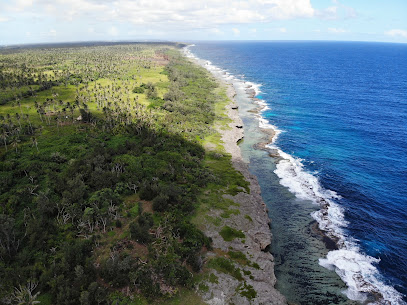
Royal Palace of Tonga
Explore the Royal Palace of Tonga, a historical landmark that embodies the rich culture and royal heritage of the Tongan people.
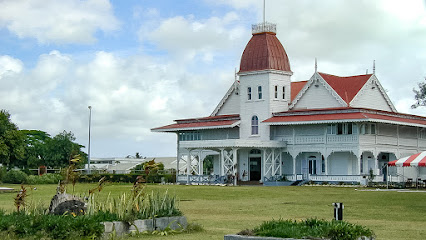
Anahulu Cave
Discover the enchanting Anahulu Cave in Tonga, a stunning natural wonder combining adventure, beauty, and unique geological formations.
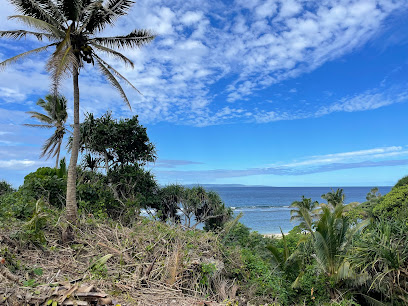
Royal Tombs
Explore the Royal Tombs in Nuku'alofa, a historical landmark that showcases Tonga's rich royal heritage and cultural significance.
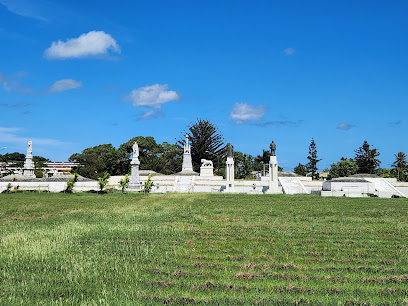
Tsunami Rock
Discover the breathtaking beauty and natural history of Tsunami Rock, a must-visit destination in Tonga's stunning landscape.
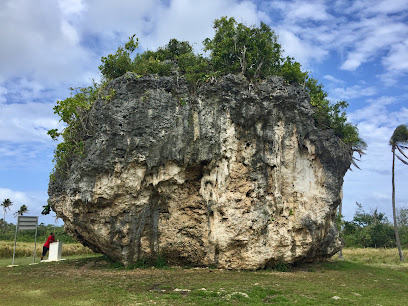
Ancient Tonga
Uncover the ancient mysteries and vibrant culture of Tonga at Ancient Tonga, a captivating destination for every traveler seeking adventure.
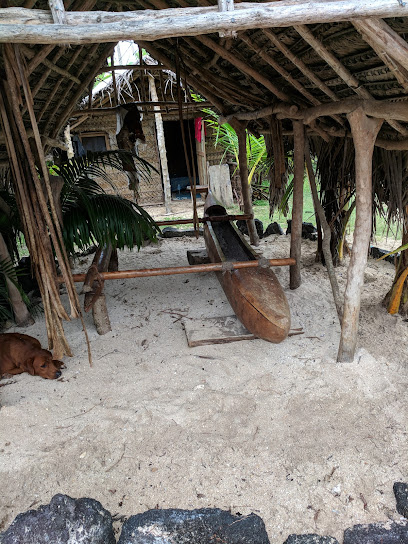
Ha'amonga 'a Maui Trilithon
Explore the Ha'amonga 'a Maui Trilithon, a breathtaking ancient structure steeped in Tongan history and culture, set against stunning natural landscapes.
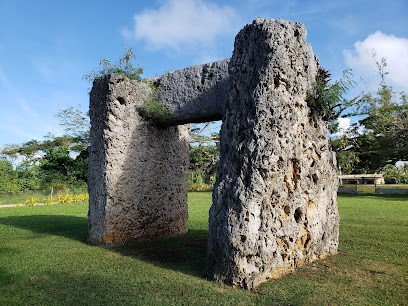
House of Tonga
Discover the essence of Tonga at the House of Tonga, your ultimate guide to exploring the beauty of Nuku'alofa and its rich culture.
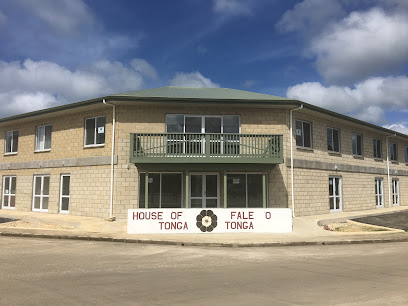
Ha'atafu Beach
Unwind at Ha'atafu Beach, a tranquil paradise in Tonga, perfect for sunbathing, snorkeling, and immersing in local culture.
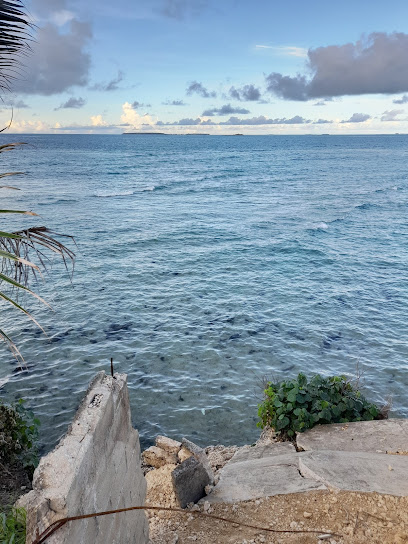
Captain Cook Landing Site
Discover the Captain Cook Landing Site in Alaki, Tonga - a historical landmark embodying adventure and maritime history amidst breathtaking natural beauty.
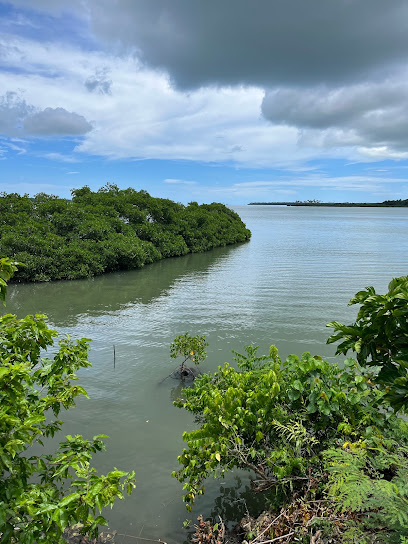
Paepae o Tele'a
Explore Paepae o Tele'a, a historical landmark in Mu'a, Tonga, showcasing ancient architecture and the rich cultural heritage of the region.
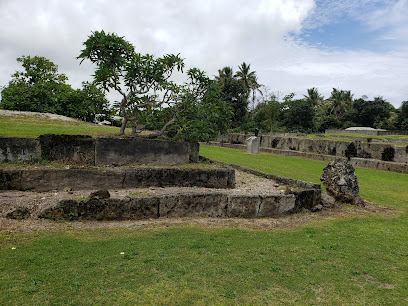
Tonga National Museum
Explore the fascinating history and vibrant culture of Tonga at the National Museum in Nuku'alofa, a must-visit destination for every traveler.
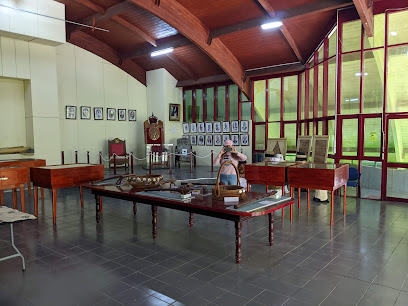
Maka Fa'akinanga
Experience the rich history and cultural heritage at Maka Fa'akinanga, a stunning landmark in Niutoua, Tonga, that captivates every visitor.
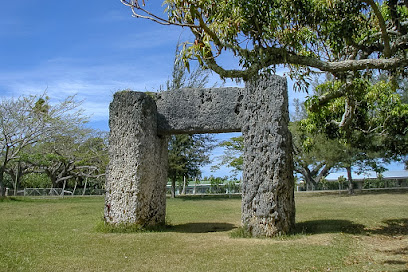
ʻEua National Park
Experience the untouched wilderness of ʻEua National Park, a breathtaking escape into nature's beauty in Tonga, rich in biodiversity and adventure.
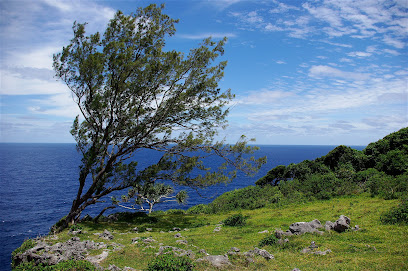
Hufangalupe
Explore Hufangalupe, Tonga's breathtaking bridge, where nature, culture, and stunning views come together in a serene paradise.
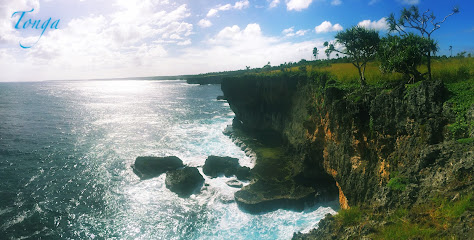
Unmissable attractions to see
Mapu'a Vaea Blowholes
Explore the stunning Mapu'a Vaea Blowholes, where powerful ocean sprays and breathtaking landscapes meet in a spectacular natural display in Tonga.
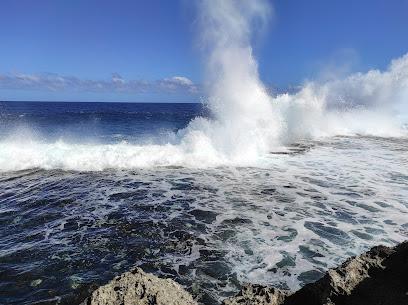
Anahulu Cave
Explore the stunning natural beauty and rich cultural heritage of Anahulu Cave, a must-visit attraction in Haveluliku, Tonga.
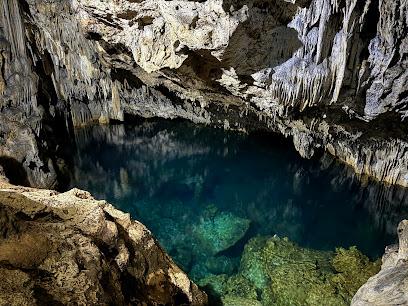
Royal Palace Of Tonga
Discover the Royal Palace of Tonga - a stunning historical site showcasing Tonga's rich heritage and royal culture in Nuku'alofa.
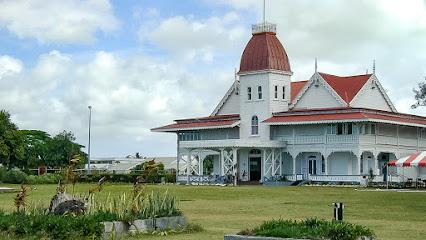
Royal Tombs
Discover the Royal Tombs of Nuku'alofa, a serene historical landmark showcasing Tonga's rich royal heritage amidst lush gardens.
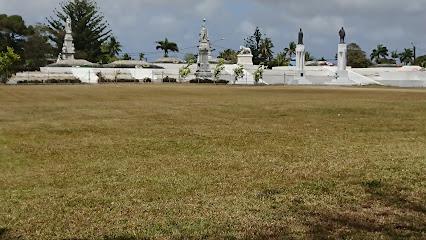
3 Headed Coconut
Explore the unique Three Headed Coconut in Matahau, Tonga, a natural wonder that embodies the beauty and culture of the island.
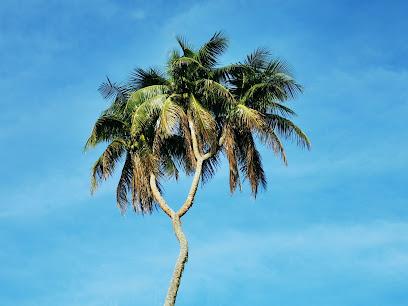
Ha'atafu Beach
Experience the untouched beauty of Ha'atafu Beach in Tonga, a perfect destination for relaxation, adventure, and breathtaking sunsets.
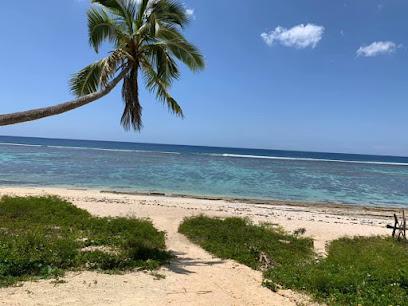
Captain Cook Landing Site
Discover the Captain Cook Landing Site in Alaki, Tonga - a historical landmark rich in maritime history and stunning natural beauty.
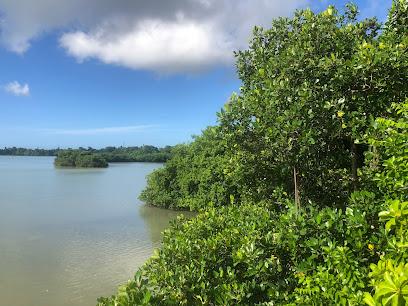
Teta Tours
Explore the beauty and culture of Tonga with Teta Tours, your trusted tour operator in Nuku'alofa offering personalized travel experiences.
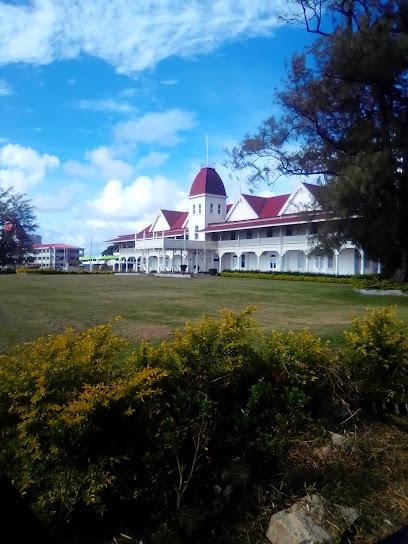
Essential places to dine
Little Italy Hotel
Experience authentic Italian dining and cozy accommodations at Little Italy Hotel in Nuku'alofa, Tonga - where culinary delight meets warm hospitality.

Cafe Escape
Discover Café Escape in Nuku'alofa - where delicious cuisine meets Tongan hospitality in a cozy atmosphere.
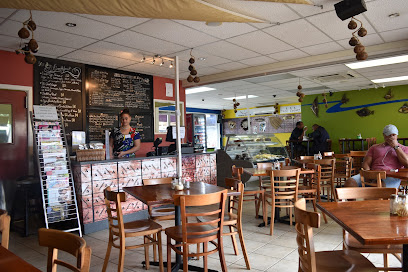
Billfish Bar and Restaurant
Discover authentic Tongan flavors at Billfish Bar and Restaurant - where great food meets vibrant island culture.
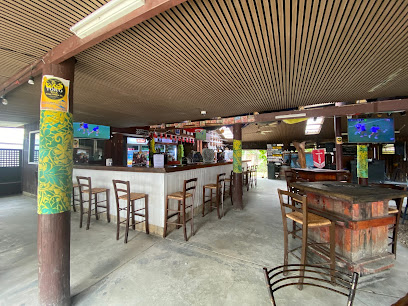
Marco's Pizza Pasta
Experience authentic Italian cuisine at Marco's Pizza Pasta in Nuku'alofa - where every dish is crafted with passion and tradition.
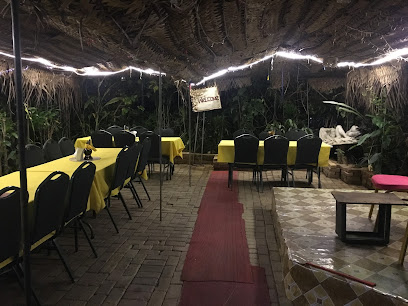
Chef Zero Restaurant
Experience authentic Tongan cuisine at Chef Zero Restaurant in Nuku'alofa – where every dish is crafted with love and tradition.
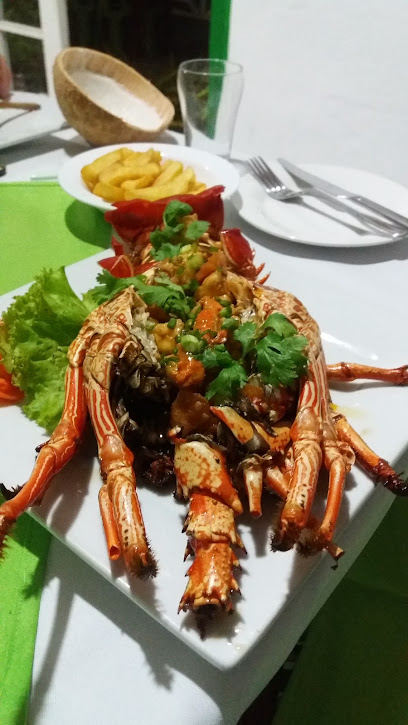
The TOP Restaurant and Lounge
Experience exquisite dining at The TOP Restaurant and Lounge in Nuku'alofa, where local flavors meet stunning views for an unforgettable culinary journey.
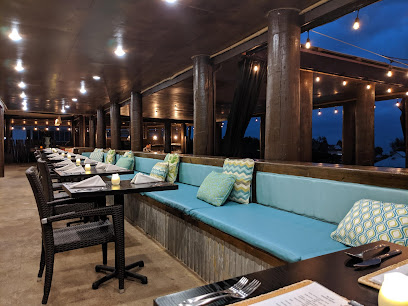
Little Italy Pizzeria Restaurant
Experience authentic Italian cuisine at Little Italy Pizzeria Restaurant in Nuku'alofa—where every meal feels like a warm embrace from Italy.
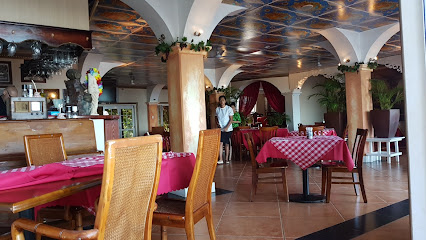
Mum's Cafe Nukualofa
Discover authentic Tongan flavors at Mum's Cafe in Nuku'alofa - where every meal tells a story.
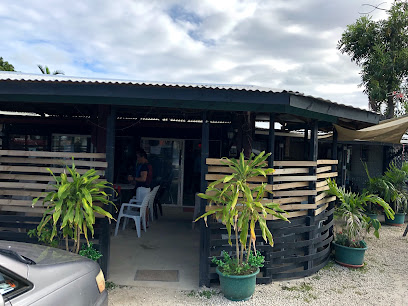
Lunarossa Restaurant
Discover authentic Italian flavors at Lunarossa Restaurant in Nuku'alofa - where culinary excellence meets Tongan hospitality.
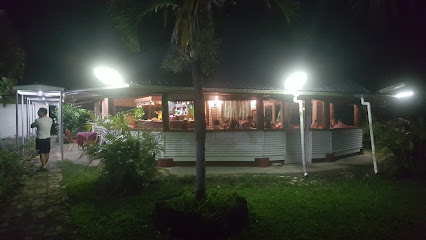
Ngutulei Bar & Restaurant
Experience authentic Tongan cuisine at Ngutulei Bar & Restaurant in Nuku'alofa - where flavor meets island charm.
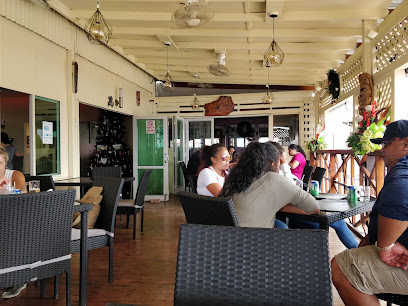
Evergreen Chinese Restaurant
Discover authentic Chinese flavors at Evergreen Chinese Restaurant in Nuku'alofa - where every meal is a delightful journey through culinary tradition.
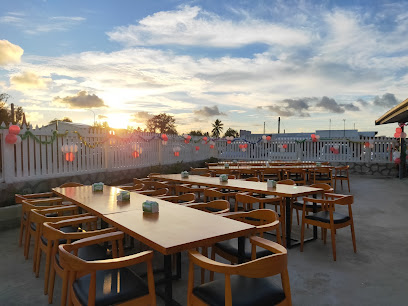
Vietnamese Cafe
Savor authentic Vietnamese cuisine in Nuku'alofa's cozy setting - a culinary gem waiting to be explored.
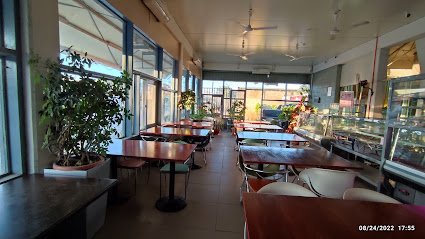
Young’s Kitchen
Discover authentic Tongan cuisine at Young’s Kitchen in Nuku'alofa - a delightful experience that celebrates local flavors and warm hospitality.
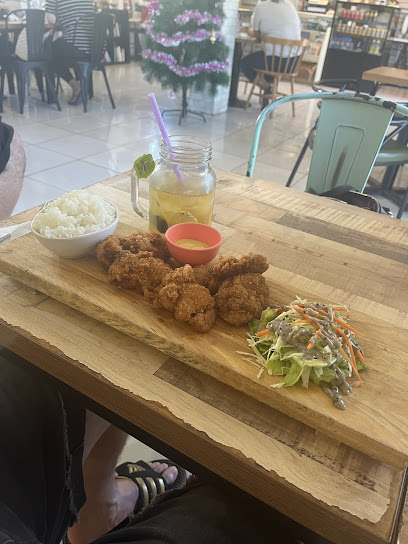
Airport Diner
Discover comfort food at Airport Diner in Fua'amotu – your perfect stop for local flavors and hearty meals before your flight.

Frangipani - Korean Restaurant/Karaoke
Experience authentic Korean cuisine combined with lively karaoke at Frangipani in Nuku'alofa – a must-visit for food lovers!
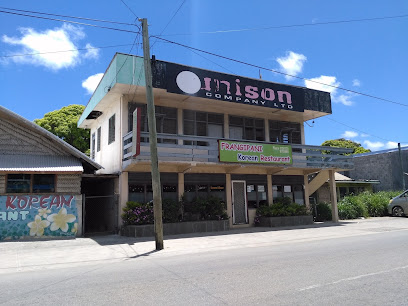
Markets, malls and hidden boutiques
Talamahu Market
Discover the vibrant local culture and fresh Tongan delicacies at Talamahu Market, the heart of Nuku'alofa's culinary scene.
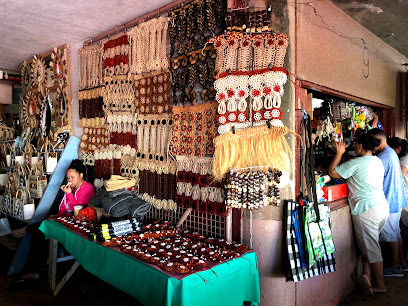
Costlow Supermarket
Discover the vibrant offerings of Costlow Supermarket, where local Tongan culture meets everyday shopping in Pea.
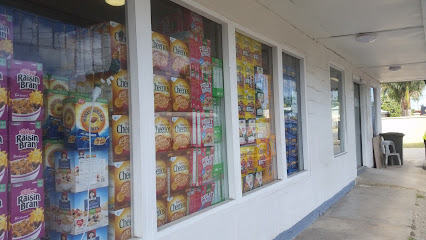
Cowley Bakery
Experience the delightful flavors of Tonga at Cowley Bakery, a community gem known for its fresh pastries and warm atmosphere.
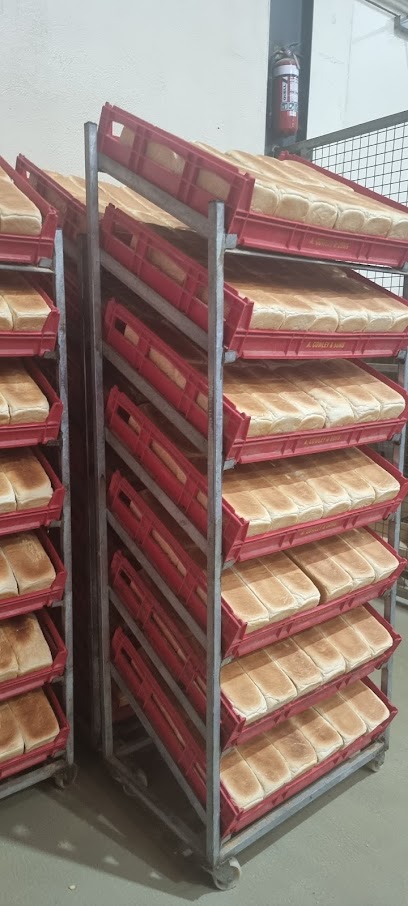
Happy Sailor Tattoo Tonga
Discover unique body art at Happy Sailor Tattoo Tonga, where skilled artists bring your tattoo visions to life in a vibrant and welcoming atmosphere.
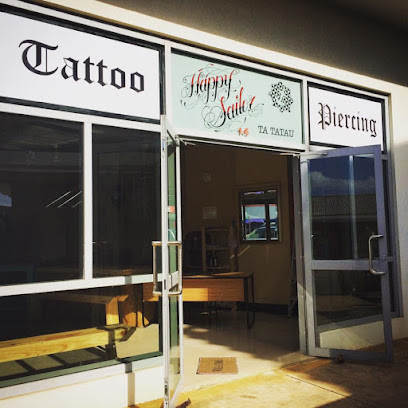
Molisi Supermarket
Explore the authentic tastes of Tonga at Molisi Supermarket, where local flavors and vibrant culture come together in Nuku'alofa.
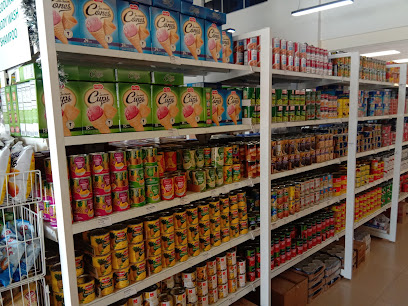
Weta Coffee - Tonga
Experience the rich flavors of Tonga at Weta Coffee, a cozy spot in Nuku'alofa offering exquisite coffee and a warm, welcoming atmosphere.
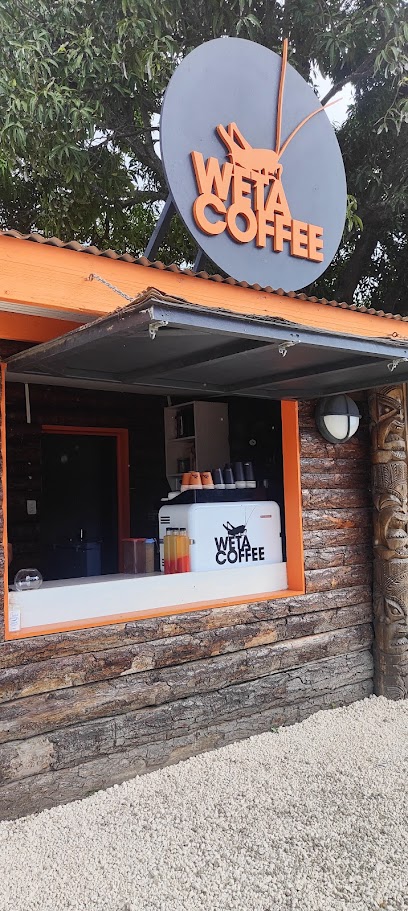
Hiki 'O Tonga
Experience Tongan culture and shopping at Hiki 'O Tonga Shopping Mall, where local meets international in a vibrant atmosphere.
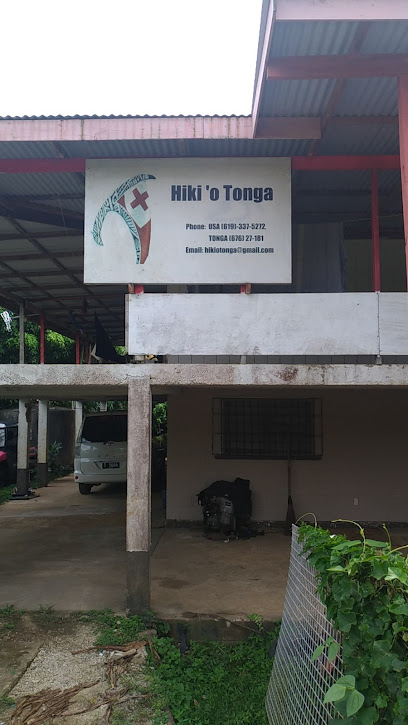
EZ TONGA ONLINE SHOPPING
Discover authentic Tongan products with EZ Tonga Online Shopping, your go-to e-commerce service in Nuku'alofa for unique souvenirs and essentials.

Liquor Store and Guesthouse
Experience the vibrant culture of Tonga at the Liquor Store and Guesthouse in Pangai, where local flavors meet warm hospitality.
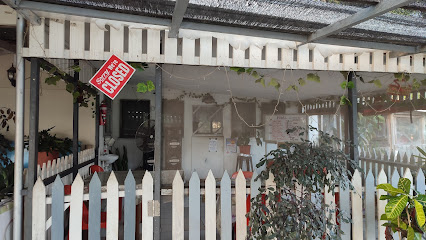
Si'i Kae Ola Supermarket
Explore local flavors and essentials at Si'i Kae Ola Supermarket in Nuku'alofa, where quality meets affordability for every traveler.
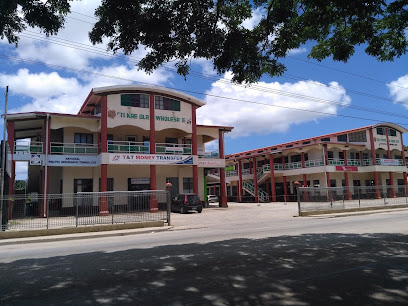
Universal Pharmacy
Discover Universal Pharmacy in Nuku'alofa: Your essential stop for health and wellness during your travels in Tonga.
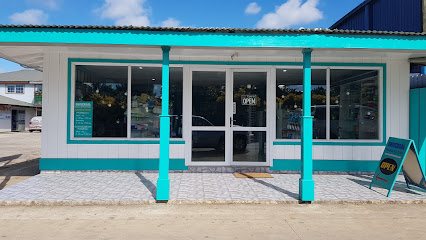
Moli Green Cafe
Discover the soothing ambiance and exquisite flavors at Moli Green Cafe, a top coffee destination in Nuku'alofa, Tonga.
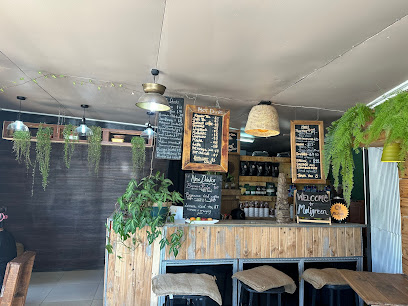
Langafonua Handicraft Centre and Gallery
Explore the vibrant craftsmanship of Tonga at Langafonua Handicraft Centre and Gallery, where local artisans showcase their incredible talents.
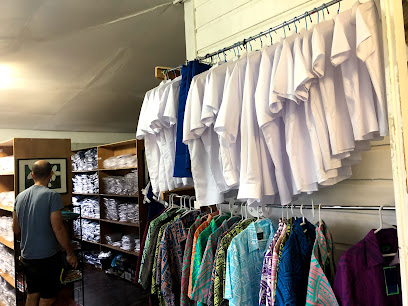
EM Jones Ltd
Explore unique Tongan craftsmanship at EM Jones Ltd, a charming home goods store in Nuku'alofa filled with local treasures.

Sunshine minimarket
Explore the taste of Tonga at Sunshine Minimarket, your go-to grocery store in Nuku'alofa for fresh produce and local delights.
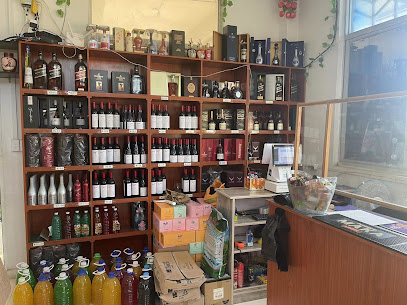
Essential bars & hidden hideouts
Coffee Post
Discover the rich flavors of Tongan coffee at Coffee Post, a cozy café in Nuku'alofa offering a unique local experience.
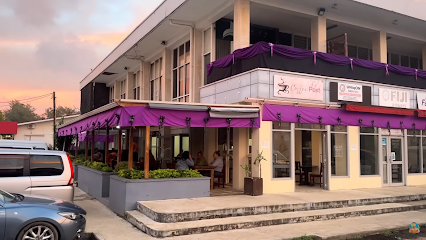
Little Italy Hotel
Experience authentic Italian dining and cozy accommodations at Little Italy Hotel, a hidden gem in Nuku'alofa, Tonga.

Friends Cafe
Discover the essence of Tongan cuisine at Friends Cafe in Nuku'alofa, where local flavors meet a cozy atmosphere.
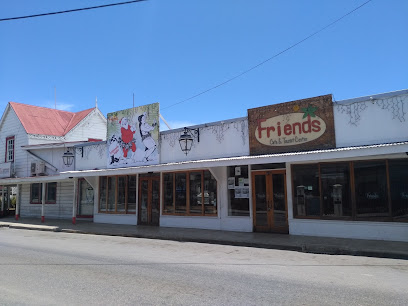
Cafe Escape
Discover Cafe Escape in Nuku'alofa, where exceptional coffee meets delicious local and international cuisine, creating a perfect dining experience.
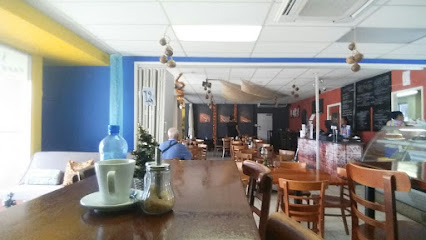
Emerald Hotel
Experience a blend of comfort and local charm at the Emerald Hotel, your perfect base for exploring Nuku'alofa, Tonga's vibrant capital.
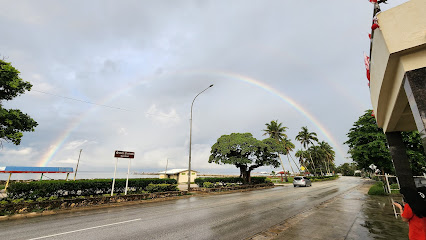
Billfish Bar and Restaurant
Experience the flavors of Tonga with stunning ocean views at Billfish Bar and Restaurant, a must-visit dining hotspot in Nuku'alofa.
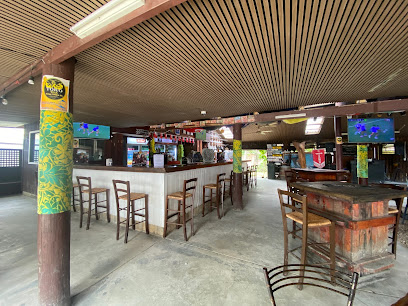
Seaview Lodge
Experience comfort and breathtaking views at Seaview Lodge in Nuku'alofa, the perfect retreat for exploring the beauty of Tonga.

Waterfront Lodge
Experience the serene beauty of Tonga at Waterfront Lodge, your perfect oasis for relaxation and adventure in Nuku'alofa.
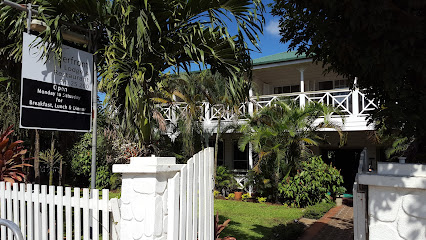
Chef Zero Restaurant
Experience culinary excellence in Nuku'alofa at Chef Zero Restaurant, where Tongan flavors meet international cuisine in a cozy setting.
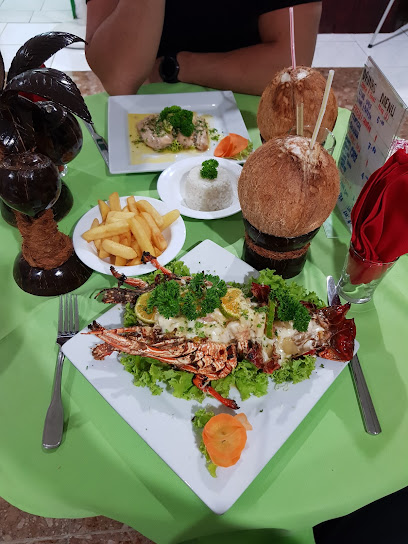
The TOP Restaurant and Lounge
Experience the vibrant flavors of Tonga at The TOP Restaurant and Lounge, where local cuisine meets stunning views in Nuku'alofa.
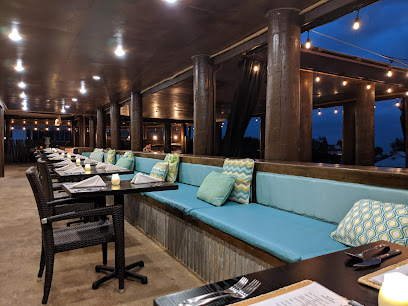
'Oholei Beach Resort
Experience tranquil luxury and Tongan culture at 'Oholei Beach Resort, where stunning beaches and cultural performances await your visit.
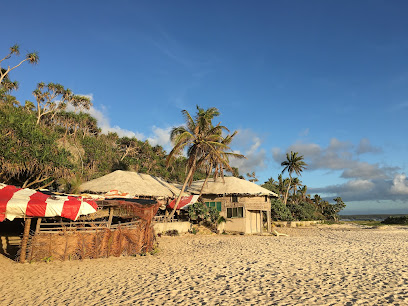
Mum's Cafe Nukualofa
Experience authentic Tongan flavors at Mum's Cafe in Nuku'alofa, a must-visit culinary destination for travelers seeking local cuisine.
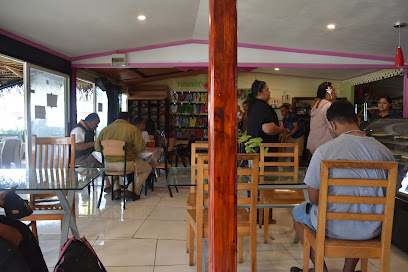
Vuna Wharf
Discover the serene beauty of Vuna Wharf in Nuku'alofa, Tonga, where ocean views and Tongan culture come together in harmony.
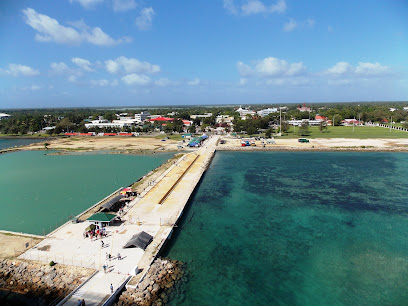
Lunarossa Deli
Savor the essence of Tonga at Lunarossa Deli, offering delicious takeout options that delight every palate.
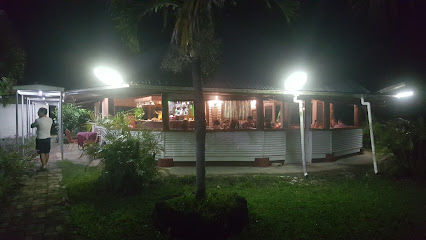
Local Phrases
-
- HelloMalo e lelei
[Mah-loh eh leh-leh] - GoodbyeNofo a
[Noh-foh ah] - YesIo
[Ee-oh] - NoʻIkai
[Ee-kahee] - Please/You're welcomeFakamolemole
[Fah-kah-moh-leh-moh-leh] - Thank youMālō
[Mah-loh] - Excuse me/SorryFakamolemole
[Fah-kah-moh-leh-moh-leh] - How are you?ʻEku haʻu?
[Eh-koo hah-oo] - Fine. And you?Lelei. Pea ʻoua?
[Leh-leh. Peh-ah oh-wah] - Do you speak English?Te u fai haʻu ʻenelisi?
[Teh oo fai hah-oo eh-neh-lee-see] - I don't understandʻIkai ke maʻu
[Ee-kahee keh mah-oo]
- HelloMalo e lelei
-
- I'd like to see the menu, pleaseʻE lava ke ʻilo e menu, fakamolemole
[Eh lah-vah keh ee-loh eh meh-noo, fah-kah-moh-leh-moh-leh] - I don't eat meatʻIkai au ʻai meʻa
[Ee-kahee ow ah-ee meh-ah] - Cheers!Mālō e lelei!
[Mah-loh eh leh-leh] - I would like to pay, pleaseʻE lava ke totongi, fakamolemole
[Eh lah-vah keh toh-tohn-gee, fah-kah-moh-leh-moh-leh]
- I'd like to see the menu, pleaseʻE lava ke ʻilo e menu, fakamolemole
-
- Help!Malie!
[Mah-lee-eh] - Go away!ʻAlu atu!
[Ah-loo ah-too] - Call the Police!Fakatokanga ʻi he polisi!
[Fah-kah-toh-kah-ngah ee heh poh-lee-see] - Call a doctor!Fakatokanga ʻi he toka!
[Fah-kah-toh-kah-ngah ee heh toh-kah] - I'm lostKo au neke talanoa
[Koh ow neh-keh tah-lah-noh-ah] - I'm illKo au tala hopo
[Koh ow tah-lah hoh-poh]
- Help!Malie!
-
- I'd like to buy...ʻE lava ke fakatau...
[Eh lah-vah keh fah-kah-tow] - I'm just lookingKo au na ʻilo
[Koh ow nah ee-loh] - How much is it?Fakamālō pe he fakamahina?
[Fah-kah-mah-loh peh heh fah-kah-mah-hee-nah] - That's too expensiveʻOku teuteu hifo
[Oh-koo teh-oo-teh hih-foh] - Can you lower the price?Ko e fakamahina?
[Koh eh fah-kah-mah-hee-nah]
- I'd like to buy...ʻE lava ke fakatau...
-
- What time is it?Ko hai haʻu ʻulu?
[Koh hai hah-oo oo-loo] - It's one o'clockʻE taha ʻulu
[Eh tah-hah oo-loo] - Half past (10)Tefito ho (ʻulu)
[Teh-fee-toh hoh oo-loo] - MorningPō
[Poh] - AfternoonʻAho
[Ah-hoh] - EveningPō
[Poh] - YesterdayʻUesite
[Wheh-see-teh] - TodayʻOku
[Oh-koo] - TomorrowʻApō
[Ah-poh] - 1Taha
[Tah-hah] - 2Fua
[Foo-ah] - 3Tolu
[Toh-loo] - 4Fā
[Fah] - 5Nima
[Nee-mah] - 6Ono
[Oh-noh] - 7Fitu
[Fee-too] - 8Valu
[Vah-loo] - 9Hiva
[Hee-vah] - 10Ua
[Oo-ah]
- What time is it?Ko hai haʻu ʻulu?
-
- Where's a/the...?Ko hai ʻi he...?
[Koh hai ee heh] - What's the address?Ko e tuʻa fānau?
[Koh eh too-ah fah-nah-oo] - Can you show me (on the map)?Ko e fakamatala ia au?
[Koh eh fah-kah-mah-tah-lah ee-ah ow] - When's the next (bus)?ʻE fē ha maʻu hopo (pasi)?
[Eh feh hah mah-oo hoh-poh pah-see] - A ticket (to ....)Tiketi (ki ....)
[Tee-keh-tee kee]
- Where's a/the...?Ko hai ʻi he...?
History of Foa
-
Foa, part of the Ha'apai island group, has a long history of Polynesian settlement. The early settlers, believed to have arrived around 1500 BCE, were expert navigators and fishermen. These early inhabitants established a thriving community, cultivating the fertile soil and fishing the abundant waters around the island.
-
During the 10th to 13th centuries, Foa was integrated into the powerful Tu'i Tonga Empire. This empire, centered on the nearby island of Tongatapu, was a significant force in the South Pacific. Foa served as an important hub for trade and cultural exchange within the empire, contributing to its prosperity and influence.
-
The first recorded European contact with Foa was by the Dutch navigators Willem Schouten and Jacob Le Maire in 1616. Later, British explorer Captain James Cook visited the Ha'apai group, including Foa, in 1777. These early encounters with Europeans marked the beginning of significant changes in the social and economic fabric of the island.
-
In the 19th century, Christian missionaries, particularly from the London Missionary Society, arrived on Foa. They played a crucial role in converting the local population to Christianity. The establishment of churches and schools led to significant cultural shifts, blending traditional Tongan practices with Christian teachings.
-
In 1900, Tonga became a British protectorate, though it retained its sovereignty. Foa, like the rest of Tonga, experienced various influences from British colonial administration. This period saw the introduction of new agricultural practices and infrastructure developments which had lasting impacts on the island's economy and way of life.
-
Tonga gained full independence from British protection in 1970. Since then, Foa has continued to develop, balancing modernization with the preservation of its rich cultural heritage. The island's stunning landscapes and vibrant traditions attract visitors from around the world, contributing to its emerging tourism industry.
Foa Essentials
-
Foa is part of the Ha'apai group in Tonga. The nearest airport is Salote Pilolevu Airport on the nearby island of Lifuka. From Tongatapu, Tonga's main island, domestic flights via Real Tonga Airlines connect to Lifuka. Once on Lifuka, you can take a short boat ride or a taxi across the causeway to Foa.
-
Getting around Foa is relatively straightforward. The island is small enough to explore by foot or by renting a bicycle. Taxis are available for longer distances. Additionally, some accommodations provide shuttle services to key attractions.
-
The official currency of Tonga is the Tongan Pa'anga (TOP). While some resorts and larger restaurants might accept credit cards, it is advisable to carry cash, especially for smaller establishments and local markets. ATMs are available on Lifuka, so it’s best to withdraw cash before heading to Foa.
-
Foa is generally considered a safe destination for tourists. However, standard safety precautions should be taken. Avoid walking alone at night on secluded beaches or unlit areas. Petty theft can occur, so always keep an eye on your belongings and avoid displaying valuable items.
-
In case of emergency, dial 911. The nearest medical facilities are located in Pangai on Lifuka, which can be reached quickly by boat or taxi. It is also advisable to have travel insurance that covers medical emergencies. Pharmacies are available for minor health issues.
-
Fashion: Do dress modestly, especially when visiting villages or attending church services. Avoid wearing swimwear outside of the beach areas. Religion: Do respect Sunday as a day of rest and worship. Most businesses will be closed. Public Transport: Do be polite and greet drivers. Don't expect strict schedules for buses or taxis. Greetings: Do greet people with a smile and a 'Malo e lelei' (Hello). Eating & Drinking: Do try local dishes and accept food offerings graciously. Don’t eat or drink in public during Sunday church services.
-
To experience Foa like a local, visit the local markets and buy fresh produce or handicrafts. Engage with the residents, who are often friendly and happy to share stories about their culture and history. Don’t miss out on traditional Tongan feasts and cultural performances, which offer a unique insight into local traditions.
Nearby Cities to Foa
-
Things To Do in Pangai
-
Things To Do in Nuku'alofa
-
Things To Do in Neiafu
-
Things To Do in Ha'apai
-
Things To Do in Vava'u
-
Things To Do in Kolovai
-
Things To Do in Ha'ano
-
Things To Do in Eua
-
Things To Do in Levuka
-
Things To Do in Nausori
-
Things To Do in Suva
-
Things To Do in Rakiraki
-
Things To Do in Savusavu
-
Things To Do in Sigatoka
-
Things To Do in Labasa







